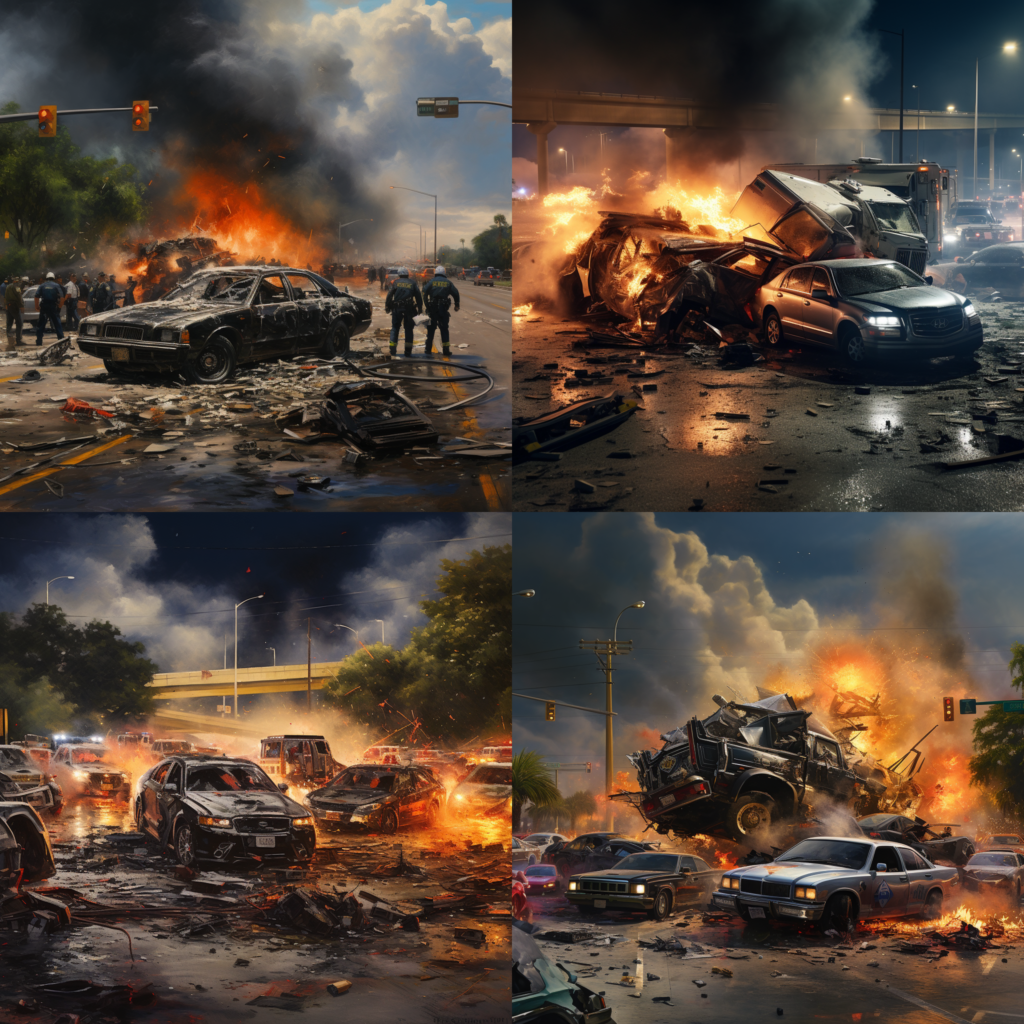
Introduction
The recent multi-vehicle crash in Houston, Texas, has brought the topic of high-speed police pursuits and public safety back into the spotlight. On or about April 2020, a dramatic car chase led by law enforcement ended in a collision involving five vehicles. As we examine the details of the incident and its consequences, we also need to consider the broader implications for public safety and the pursuit policies of law enforcement agencies.
The Incident
The chase began when a suspect, driving a stolen vehicle, was spotted by police officers in the Houston area. The suspect, identified as John Doe, attempted to flee the scene, prompting a high-speed pursuit. The chase covered several miles across the city, with speeds exceeding 100 mph, before coming to a dramatic conclusion in a major intersection.
As the stolen vehicle entered the intersection, it collided with four other vehicles, causing a chain reaction of crashes. The aftermath was catastrophic, with multiple people suffering from severe injuries and significant damage to all vehicles involved. Emergency services promptly arrived at the scene to tend to the injured and clear the wreckage.
Consequences of a High Speed-Pursuit-Dangers
In total, several people were hospitalized due to the accident, including innocent motorists caught up in the chaos. The police ultimately apprehended the suspect, but the incident raises questions about the balance between public safety and effective law enforcement.
High-speed chases have long been a controversial topic, with debates revolving around the potential risks posed to the public, police officers, and the suspects themselves. The Houston collision serves as a stark reminder of the potential dangers involved in such pursuits, as well as the need for a careful evaluation of current policies. High-Speed Pursuit Dangers.
Public Safety and Pursuit Policies
Law enforcement agencies across the United States have varying pursuit policies, with some allowing high-speed chases only in extreme circumstances, while others adopt a more permissive approach. The Houston incident brings to light the need for a comprehensive review of these policies, as well as the implementation of new technologies to minimize the risk to the public. High-Speed Pursuit Dangers.
Some potential alternatives to high-speed pursuits include GPS tracking devices, drone surveillance, and other remote monitoring technologies. These tools could assist officers in safely apprehending suspects without endangering the lives of innocent bystanders.
Conclusion
The recent 5-vehicle crash in Houston, Texas, highlights the ongoing debate about high-speed police pursuits and their potential risks to public safety. As we reflect on the devastating consequences of this incident, it is crucial to examine current law enforcement policies and consider the adoption of new technologies to minimize the dangers associated with car chases. The ultimate goal should be to protect and serve the public while ensuring the effective apprehension of suspects without causing unnecessary harm.

